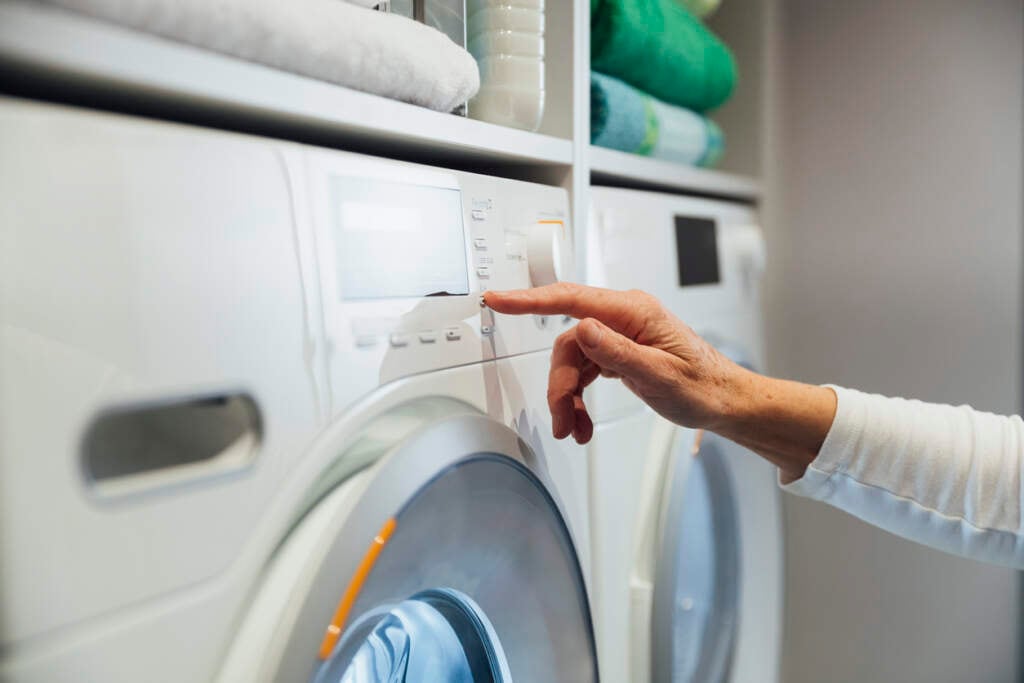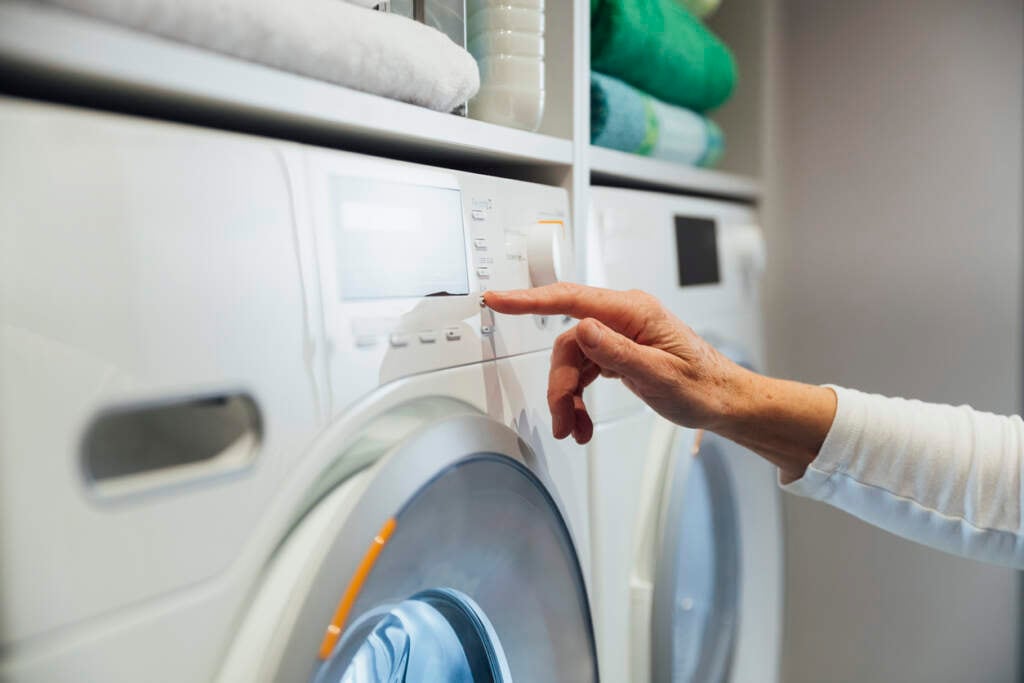
Dryers add invaluable convenience to our lives–not only do they ensure your clothes are properly dry, but they save you time and effort, too. When the weather is less than ideal for drying clothes, dryers have you covered.
When it comes to buying a dryer, there are a few key things to consider. From understanding the different types of dryers and considering which features you need, to determining the ideal capacity you need and its energy efficiency, buying the right dryer within your budget can be tricky.
In this clothes dryer buying guide, we’ll discuss the different types of dryers available and key considerations to factor in when buying a dryer.
Types of Dryers
The four most common types of dryers are vented dryers, condenser dryers, heat pump condenser dryers and washer-dryer combos. Each comes with its own set of advantages and what you buy should depend on your laundry space, requirements and personal preferences.
Whether you’re looking for the most energy-efficient dryer or space-saving convenience, we’ll run through the main features of each type of dryer on the market.
Vented Dryers
These are the most common types of clothes dryers. They are lightweight and can be mounted on the wall to save space. Vented dryers are usually fairly cheap to buy, but can be expensive to run. This is an important factor to consider if you dry your clothes regularly in the dryer, but if you plan to use your dryer only occasionally, it could be the most affordable option in the long run.
Vented dryers pump hot and moist air into the room, so you’ll need to make sure your laundry has decent ventilation. Because vented dryers are expensive to run, they are ideal for those who use them only occasionally when hanging their clothes is not an option.
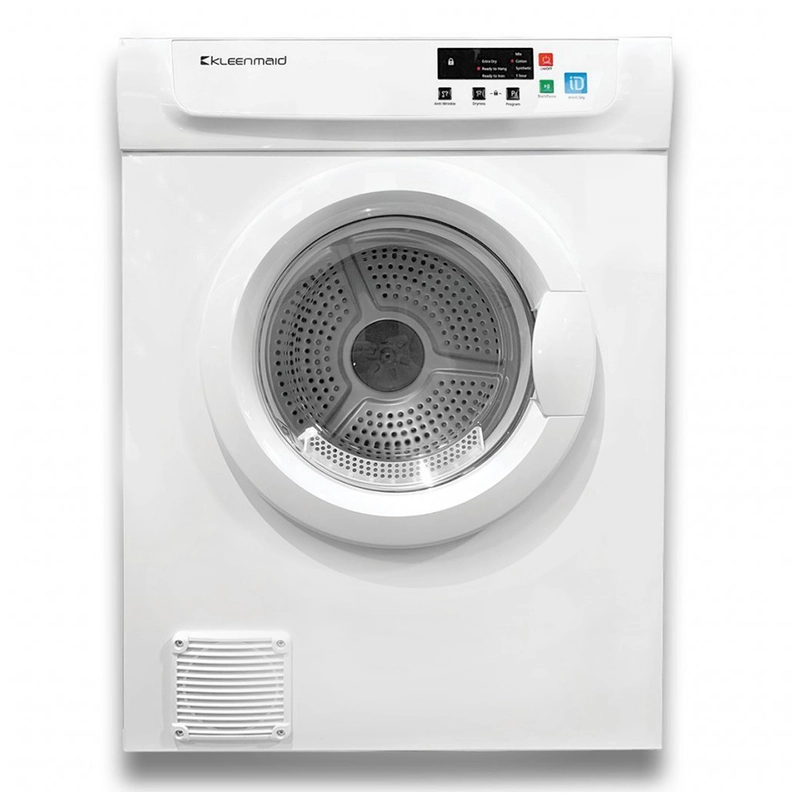
Advantages
- Usually less expensive than other dryers
- Can handle larger loads of laundry
- Dries laundry faster than condenser dryers
- Require little maintenance
- Can be wall-mounted
Disadvantages
- Requires external venting
- Expels warm and moist air, which can increase humidity
- Heat loss in colder months if the vent is not properly sealed
- Timer drying risks overdrying your clothes
Condenser Dryers
Condenser dryers operate differently from vented dryers in that they collect moisture from clothes in a water reservoir condensing chamber. Condenser dryers don’t require an external vent for installation and can be placed anywhere.
So, are condenser dryers better than vented dryers? Ultimately, condenser dryers are ideal for contained laundries without ventilation. However, drying clothes takes longer. Condenser dryers are ideal for those who use their dryer often or don’t have well-ventilated laundry.
Advantages
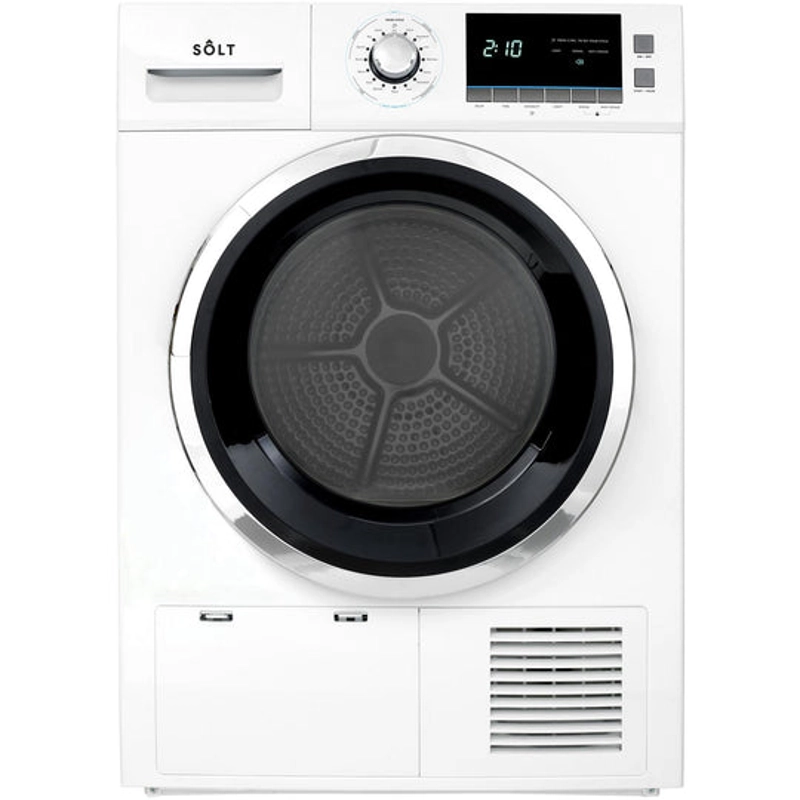
- No need for external venting
- Can be installed anywhere
- Does not release warm air into the room
Disadvantages
- Can be more expensive than vented dryers
- Requires regular emptying of water contained or connecting a drain hose
- Longer drying times
Heat Pump Condenser Dryers
Heat pump condenser dryers are a more advanced type of condenser dryers. They operate with greater energy efficiency and use heat pump technology to dry clothes in order to consume less energy.
So, are heat pump dryers worth it? In short, yes. They may cost more upfront, but they are more a economical option for the long-term.
Advantages
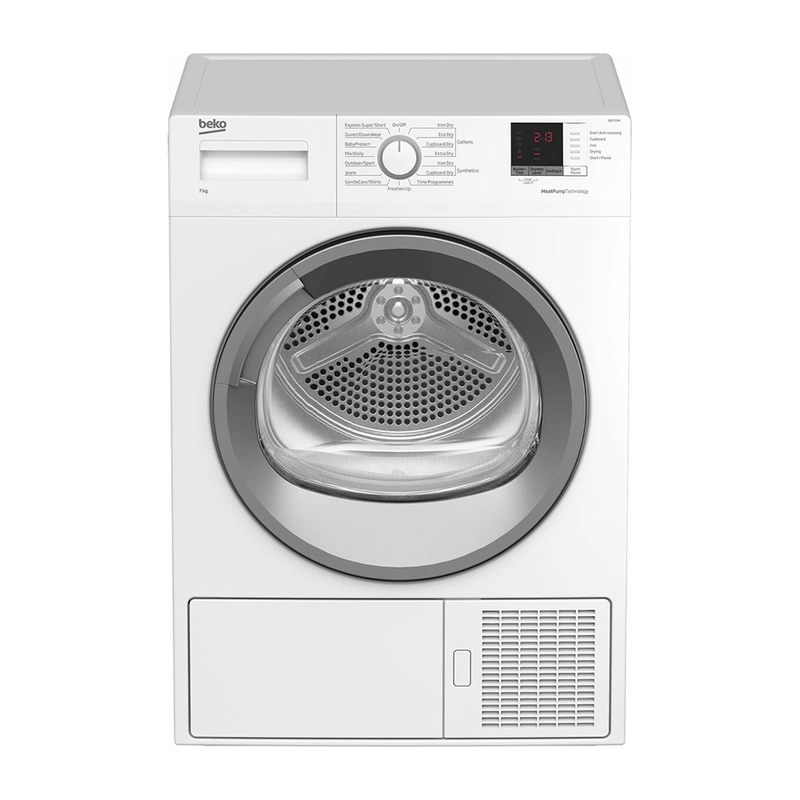
- Energy efficient
- No external venting
- Gentle on clothes
Disadvantages
- More expensive than other dryers
- Longer drying times due to lower temperatures
- May require maintenance or filter cleaning
Washer Dryer Combo
Washer-dryers offer the convenience of both a washing and dryer function. They’re ideal for small spaces as they save a bunch of space, but do come with a few imitations. Washer dryers have a smaller drying capacity compared to standalone dryers, and the drying cycles tend to be longer.
Washer-dryers are most suitable for those living in a small space. They are also ideal for those with little laundry, as you can’t wash and dry separate loads at the same time.
With all this in mind, are washer dryers any good? Ultimately, washer-dryers are a good option for those living in small spaces who want both a washing machine and a dryer. However, they have a lower efficiency compared to using each appliance separately.
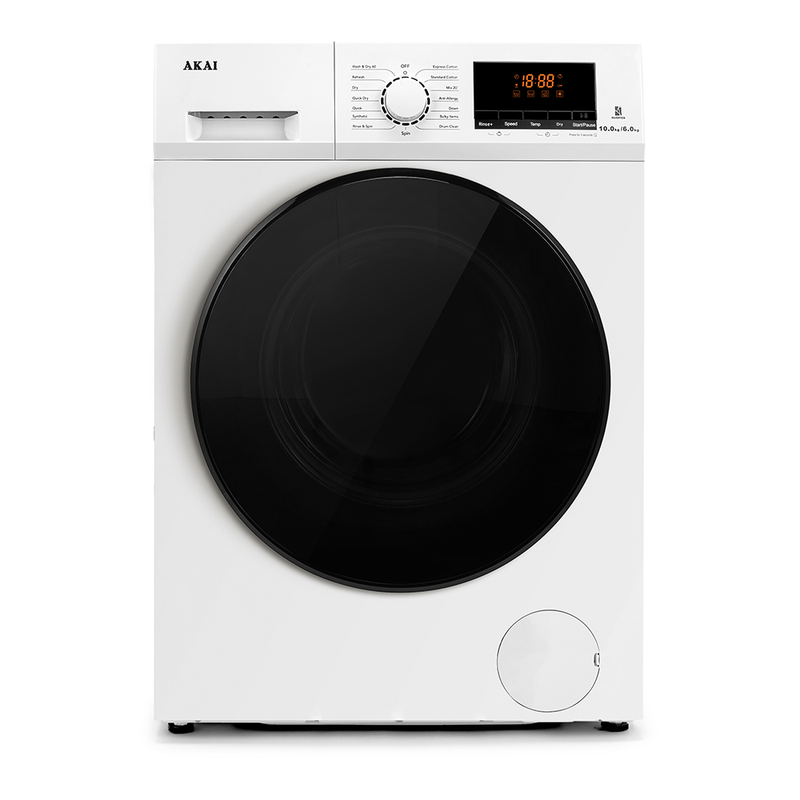
Advantages
- Space saving
- Two-in-one design
- Convenient
Disadvantages
- Usually have smaller drying capacities
- Longer cycle times
- Can’t wash and dry two loads of laundry at once
- Malfunction affects both your washing and drying
Shop here
How to Install a Dryer
Installing a dryer is fairly straightforward–all that’s required is connecting the dryer to a power source, ensuring it has proper ventilation and setting up the exhaust system.
ented dryers need to be installed close to an external vent to allow damp air to escape outside. They’re the only dryers you can mount to the wall, but you may require a ventilation kit to remove hot and moist air from your laundry.
Condenser dryers don’t require much for installation other than a power source. Heat pump condenser dryers, on the other hand, need to be plugged into a room that is well-ventilated.
A washer dryer combo requires both a power and water source.
What to Consider
Other than the type of dryer you choose, there are other important considerations to factor in. From capacity to energy efficiency to programs, we’ll run through what to look for in a dryer.
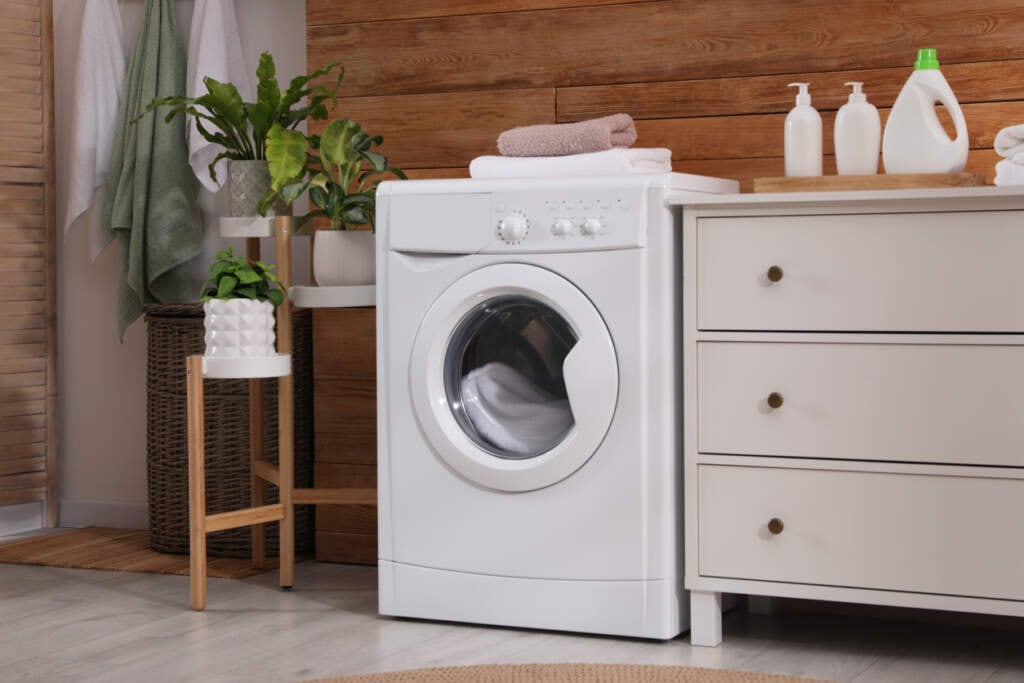
Capacity
The capacity of a dryer is measured by the weight of dry clothing, not wet, it can accommodate in its drum. Typically, smaller dryers start at a capacity of 4kg. If you live alone or with one other person, 4kg is a suitable size. For households of three or four, a dryer with a 7kg to 8.5kg capacity is ideal. Larger households with five or more people will likely require a dryer with a capacity of 9kg or more.
Consider whether you’ll be using your dryer regularly for full loads, or for smaller loads here and there.
Tip: Match your dryer size to the size of you washing machine. This will help create a more efficient flow of laundry, so you can wash and dry the same load without splitting it into two separate loads.
Energy Efficiency
When buying a dryer, make sure to look at the Energy Rating level. The more stars, the better the savings. If you’re looking for a dryer with high energy efficiency, consider a heat pump condenser dryer. They can be more expensive to buy upfront but use less energy to save you money in the long run.
If you only want to use your dryer occasionally, you may consider buying a vented dryer as they are cheaper upfront but more expensive to run.
Filters
Look for dryers with a lint filter that’s easy to access.
Since the lint filter needs to be cleaned regularly in order for your dryer to operate at its safest and most efficient, it’s better if the filter is at the front of the dryer and easy to access.
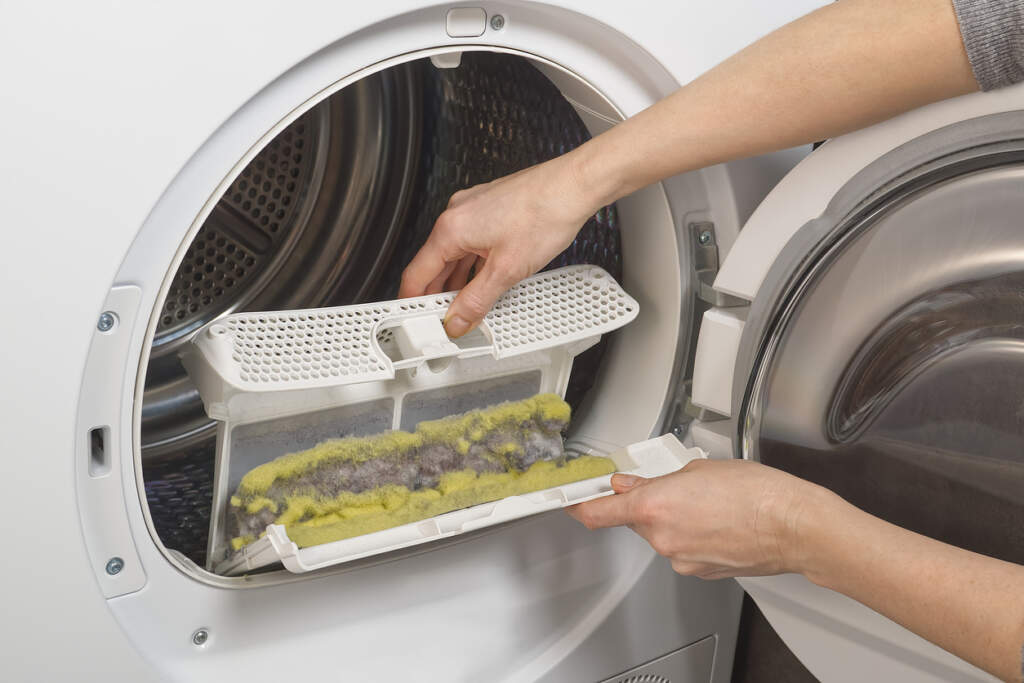
Drying Cycles
If you’re looking for a dryer with short drying times, your best bet is a vented dryer. However, despite heat pump condenser dryers taking longer to dry clothes, these types of dryers are gentler on your clothes.
Features to Look Out For
Before buying a dryer, consider key features such as the drying programs and settings of the dryer. Look for drying programs including:
Anti-wrinkle: allows your dryer to continue tumbling your clothes after drying has finished preventing creases and wrinkles from settling in
Delay-time: allows you to set your dryer to start at a specific time
Reverse tumbling: reverses the direction of tumbling regularly to dry more evenly and prevent tangling
Auto program: automatically detects when the load is dry, so you save energy and prevent over-drying and damage
Woollens program: low heat program designed for drying wool and wool-blend clothing and bedding
Delicates program: a gentle, low-temperature program designed for drying delicate fabrics
